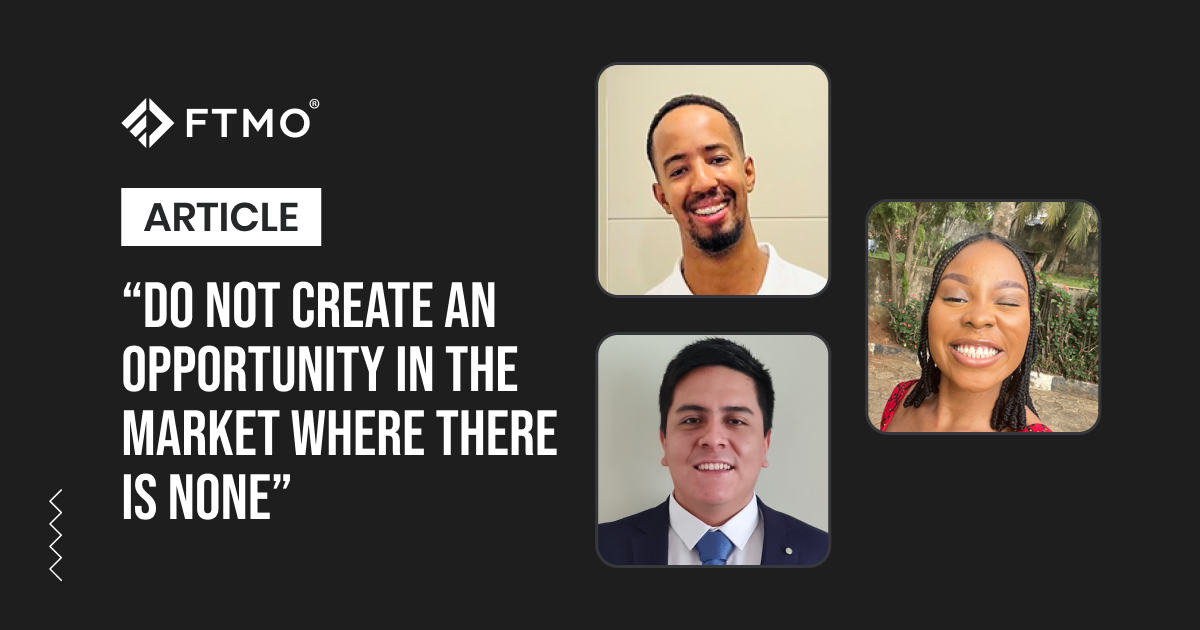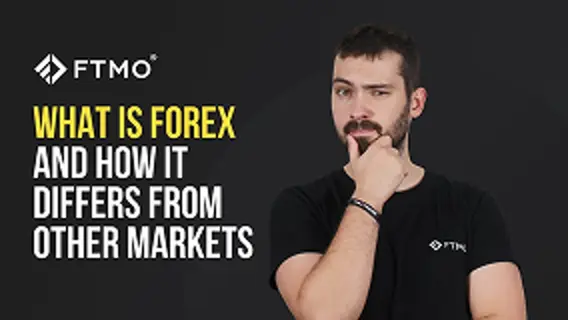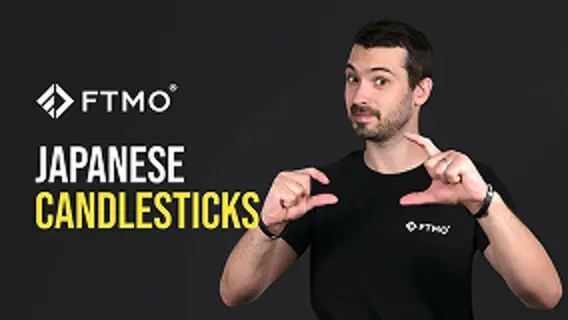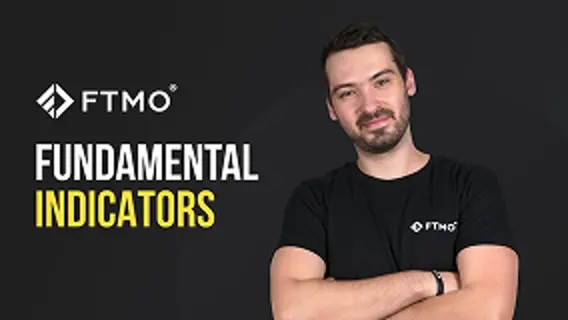
“Do not create an opportunity in the market where there is none”
Don't push the limits, don't try to find opportunities to open a position just because you haven't opened any trades today and you feel it's wrong. The ability to not open a single trade during the course of the day is something that especially intraday traders must master, otherwise they will never be profitable in forex in the long run. And our new traders know this very well.
Trader Jose Adolfo: “I have learned to accept the risk and consequences of my trades.”

How did loss limits affect your trading style?
The maximum loss does not affect my trading style significantly because my risk management strategy sets a daily loss limit of 1%. My trading plan, which involves both technical and fundamental analysis, gives me the confidence to operate within the limits set by FTMO. By adhering to these rules and strategies, I ensure that I am trading in a disciplined and controlled manner.
What was the hardest obstacle on your trading journey?
The hardest obstacle on my trading journey was accepting the inevitable losses due to an initially inadequate trading plan and risk management strategy. Understanding that my discipline, emotional resilience, and mental fortitude were crucial for success, I focused on developing a robust trading plan. This plan included clear rules for risk management and technical analysis, helping me navigate the markets more confidently and systematically. Through constant self-improvement and education, I defined my goals and aspirations, ensuring that my approach to trading was disciplined and well-structured.
How did you eliminate the factor of luck in your trading?
Eliminating the factor of luck in my trading required a disciplined approach to both risk management and analysis. I established a daily loss limit of 1% and adhered strictly to my trading plan, which combines technical and fundamental analysis. By focusing on consistent application of these strategies, I removed impulsive decision-making and emotional reactions from my trading process. This disciplined approach ensures that my trades are based on analysis and strategy rather than chance. Additionally, I learned to accept the consequences of every decision, understanding that I must be prepared for any outcome, positive or negative. This acceptance helps maintain emotional control and prevents any impact on my quality of life as a trader.

Has your psychology ever affected your trading plan?
Yes, psychology has significantly affected my trading plan. Initially, emotional responses such as fear and greed led to poor decision-making and inconsistent results. By recognizing the importance of mental and emotional well-being, I implemented strategies to manage these impulses. Practicing patience, maintaining a clear mindset, and sticking to my predefined trading rules have been essential in ensuring that my psychology supports rather than hinders my trading success. Moreover, I have learned to accept the risk and consequences of my trades, ensuring that my mental state remains unaffected by individual trade outcomes.
What does your risk management plan look like?
My risk management plan is designed to protect my capital and ensure sustainable trading. It includes a strict daily loss limit of 1%, beyond which I stop trading for the day. I also set specific stop-loss and take-profit levels for each trade, ensuring that I can exit positions at predetermined points. Additionally, I only trade during the London and New York sessions, where I find the most suitable market conditions for my strategy. Furthermore, my experience over time in identifying and following currency pairs of interest has been crucial. I primarily focus on the EUR/USD pair, which makes up about 80% of my trades, and occasionally on the GBP/USD pair, accounting for the remaining 20%. This consistent monitoring and analysis have allowed me to become familiar with their behaviors and nuances, enabling me to make more informed and confident trading decisions. I am also aware of the high-impact news events that can occur at specific times, and my plan includes measures to protect myself from these events. Understanding the potential impact of such news on the currency pairs I follow, I avoid opening new trades during these periods. This precaution helps prevent unpredictable price movements from adversely affecting my trades. By adhering to these rules, leveraging my experience, and protecting against high-impact news events, I maintain control over my risk exposure and trading performance. Additionally, I accept the inherent risk in each trade, understanding that each decision I make has potential consequences that I am prepared to handle emotionally and mentally.
What would you like to say to other traders that are attempting the FTMO Challenge?
To other traders attempting the Challenge, I would say that discipline and preparation are your greatest allies. Develop a solid trading plan, focus on risk management, and continuously educate yourself. Understand that success in trading is not immediate; it requires patience and resilience. Take care of your mental and emotional health, as these are crucial for making sound decisions. Trust in your analysis, stay disciplined, and remain committed to improving your trading skills. With determination and the right mindset, you can achieve success. Moreover, be prepared to accept the consequences of your trades, knowing that each decision you make is part of your journey to becoming a successful trader. Accepting and managing risk is key to maintaining your quality of life and performance as a trader.
Trader Toluwanimi Temitope: “Take time to learn the market.”

How did you eliminate the factor of luck in your trading?
By carefully analyzing the market and using proper risk to reward management.
What was the most difficult during your FTMO Challenge or Verification and how did you overcome it?
Nothing difficult really. It took me a while to meet the evaluation stage objectives but due to the unlimited time given by FTMO to trade, I was not under pressure and was able to trade at my own pace.
Describe your best trade.
I would say my best trade is that of USDCHF sell trade because I was able to make most of my profit on the pair in the evaluation session.

Do you have a trading plan in place, and do you follow it strictly?
Yes, I do have a trading plan in place, and I follow it strictly.
What do you think is the most important characteristic/attribute to become a profitable trader?
I would say patience and discipline. That is, do not create an opportunity in the market where there is none (Forcing a trade) and getting rid of greed and fear.
What is the number one advice you would give to a new trader?
Take time to learn the market, both in the technical, fundamentals and psychological aspect. Do not rush the process and do not think of trading as a get rich quick scheme.
Trader Chun Yu: “100 times of retest is needed.”

What was the most difficult during your FTMO Challenge or Verification and how did you overcome it?
It’s hard to keep patience and discipline when the price is moving slowly and not going the way you want it to go. To solve it, I simply set SL and TP, then close the chart and start playing guitar.
Where have you learnt about FTMO?
Internet and YouTube actually.

Describe your best trade.
So, I use different time frames of Liquidity sweep, MSS, FVG as confirmation of entry. I still remember that after fulfilling these conditions, and I was profiting like around 86% of the trade, the opposite side of condition comes out, and I followed my rules, take profit and start shorting, which make me profit 400% again.
How would you rate your experience with FTMO?
Pretty good for now.
What would you like to say to other traders that are attempting the FTMO Challenge?
100 times of retest is needed.
Trader Dalha Hassan: “I think technical analysis is very simple but what’s hard is the psychology.”

What inspires you to pursue trading?
Freedom of time and the flexibility to do anything I want.
Do you plan to take another FTMO Challenge to manage even bigger capital?
Yes, I want to scale up my capital up to max allocation.
What do you think is the key for long term success in trading?
Being patient and understanding yourself, also you need a chart time you need to handle the stress and emotional state.

What was the most difficult during your FTMO Challenge or Verification and how did you overcome it?
I think verification stage was a little bit difficult because I went through drawdown directly, but I was able to handle to get out the drawdown.
Has your psychology ever affected your trading plan?
Yes, trading affected a lot in my psychology because this game is not what you think, I think technical analysis is very simple but what’s hard is the psychology because when you're going through some loss streak our emotions take control and we lose more and more till we blow up our account, so always work on your mindset and psychology.
One piece of advice for people starting the FTMO Challenge now.
Never give up on yourself, I have lost a lot, but I have learned a lot, don’t forget this first you learn then you remove the L.
About FTMO
FTMO has developed a two-step evaluation process to find trading talents. Upon successful completion, you may be eligible for an FTMO Rewards Account with a balance of up to $200,000 in simulated funds. How does it work?








